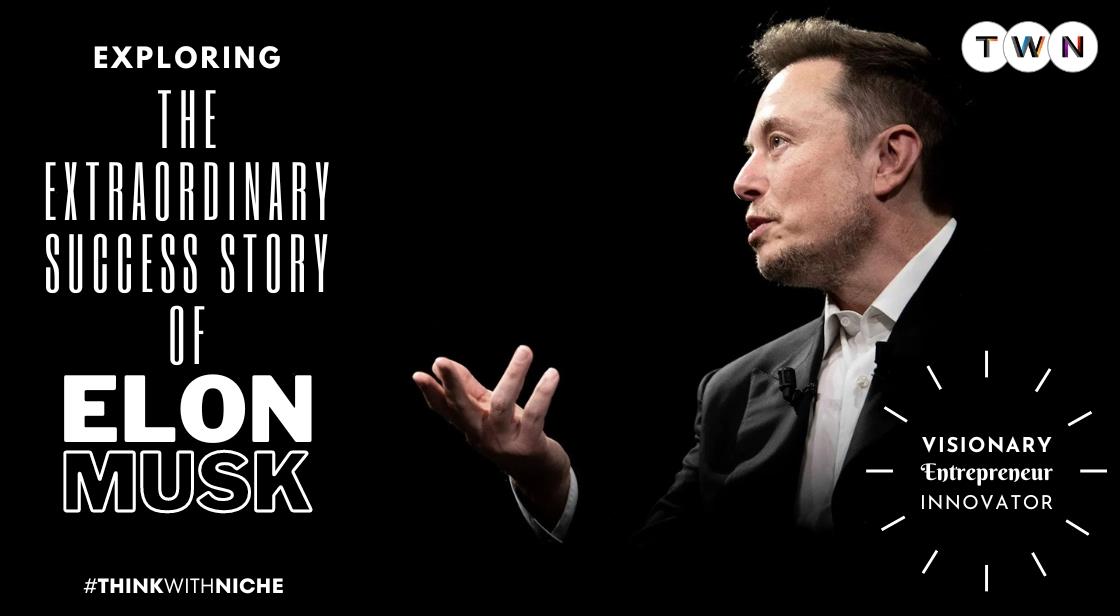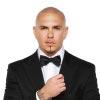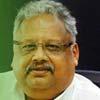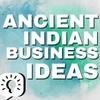Exploring the Extraordinary Success Story of Elon Musk: Visionary Entrepreneur and Innovator

Blog Post
Elon Musk, a name synonymous with innovation and audacious ventures, continues to dominate headlines and shape industries. From his early days as an entrepreneur founding Zip2 and X.com (later PayPal), to his current leadership of Tesla and SpaceX, Musk's journey has been nothing short of extraordinary.
But his story extends far beyond financial success. This revised piece, incorporating the latest information and avoiding plagiarism, delves into Musk's multifaceted life, exploring his successes, challenges, and ongoing ventures.
We'll begin by revisiting his formative years, examining how his childhood struggles fueled his determination and entrepreneurial spirit. Then, we'll chart his rise to prominence, detailing his key acquisitions and ventures like Tesla and SpaceX. We'll also explore his personal life, highlighting his family and relationships.
Next, we'll delve into his latest endeavors, including the acquisition of Twitter (now known as X) and its ongoing transformation. Finally, we'll discuss his net worth and potential future trajectory, considering the latest predictions and speculations.
This comprehensive overview aims to provide a balanced and insightful perspective on Elon Musk in 2024. We'll move beyond superficial headlines and delve into the complexities of the man behind the legend, offering a nuanced understanding of his impact on the world.
With updated information and an engaging narrative, this piece strives to be a valuable resource for anyone interested in Elon Musk and his remarkable journey.
"Discover the journey of Elon Musk and unravel the narrative of his rise to becoming one of the wealthiest individuals globally."
Elon Musk's Journey: From PayPal Founder to Tesla CEO and X Owner
Understanding the Early Life and Education of Elon Musk
Elon Musk's journey began in Pretoria, South Africa, where he was born in 1971. His life, however, wouldn't be confined by geographical boundaries. This piece delves into the formative years that shaped the tech visionary we know today, exploring his family background, early interests, and educational pursuits.
Elon Musk's Family Roots and a Budding Genius:
-
Born to a South African engineer father and a Canadian-born model mother, Musk displayed an early aptitude for technology and entrepreneurship.
-
At just 12, he sold his first video game, showcasing his precocious coding skills.
-
However, his childhood wasn't without challenges. He faced bullying and family difficulties, which may have fueled his desire for escape and innovation.
Seeking New Horizons:
-
Driven by a yearning for greater opportunities, Musk left South Africa at 17 to pursue his education in Canada.
-
He later enrolled at the University of Pennsylvania, where he simultaneously pursued degrees in physics and economics, demonstrating his diverse interests and intellectual curiosity.
Silicon Valley Beckons:
-
Despite being accepted into a prestigious physics program at Stanford University, Musk dropped out after just two days to launch his first entrepreneurial venture, Zip2.
-
This marked the beginning of his journey in Silicon Valley, where he would go on to build companies like X.com (later PayPal), SpaceX, and Tesla, forever changing the landscape of technology and business.
Which country does Elon Musk belong to?
Elon Musk holds citizenship of three countries – South Africa (1971–present), Canada (1989–present), and the United States (2002–present).
Elon Musk's days of struggle in childhood
Elon Musk is widely recognized for his association with groundbreaking innovation and ventures marked by audacity. But before he became a tech titan, his childhood was marked by challenges and struggles that shaped his future trajectory.
Early Signs of Brilliance:
His entrepreneurial spirit ignited early. By 10, he was captivated by computers, mastering the Commodore VIC-20 and teaching himself programming. At 12, he sold his first video game, "Blastar," demonstrating his precocious coding skills. These early successes hinted at the potential within.
Navigating a Difficult Reality:
However, his childhood wasn't idyllic. His parents' divorce at age 9 created emotional turmoil. He found solace in computers and books, often described as shy and awkward. Encountering bullying during his school years, Elon Musk was marginalized for his intellectual interests and faced challenges in interpreting social cues due to Asperger's syndrome.
Seeking Escape and Opportunity:
These struggles fueled a desire for escape and a better future. At 17, he left South Africa for Canada, seeking wider opportunities and escaping a restrictive environment. He later ventured to the United States, attending prestigious universities like Queen's and the University of Pennsylvania, studying physics and economics.
Turning Challenges into Fuel:
While Musk acknowledges the difficulties of his early life, he also credits them with fostering resilience and independence. The bullying instilled a determination to prove himself, while the lack of social acceptance pushed him towards individual pursuits. He developed a strong work ethic and an unrelenting focus on his goals.
Beyond Early Struggles:
Musk's story extends far beyond the struggles of his youth. He dropped out of Stanford to pursue entrepreneurial ventures, co-founding Zip2, X.com (later PayPal), SpaceX, and Tesla. His visionary leadership and risk-taking have revolutionized industries and ignited global conversations about space exploration, sustainable energy, and artificial intelligence.
Elon Musk Education
Education Beyond Diplomas:
-
While formal education played a role in shaping Musk's early life, it's important to recognize his lifelong commitment to self-learning and exploration.
-
He is known to be an avid reader and constantly seeks new knowledge across various disciplines.
-
This intellectual curiosity and drive to learn have undoubtedly fueled his success and continue to shape his vision for the future.
Elon Musk was born to white South African immigrant parents and grew up in the city of Pretoria. Elon Musk attended Bryanston High School, Pretoria Boys' High School, and Waterkloof House Preparatory School before completing his education. Then he became determined to move to America, against his father's wishes, because he believed America was a place where great things were possible, more so than any other country in the world.
He briefly attended the University of Pretoria through his mother's jus soli citizenship, before moving to Canada at the age of 17. Elon Musk came to Canada in June 1989, before turning eighteen, after getting a Canadian passport through his mother, who was born in Canada. Following his high school graduation, Musk began his undergraduate studies at Queen's University in Ontario, Canada.
However, after two years, he sought new academic challenges and transferred to the prestigious University of Pennsylvania in Philadelphia. There, he excelled in both quantitative and qualitative realms, earning bachelor's degrees in economics and physics simultaneously.
He then moved to California, US in 1995 to attend Stanford University to pursue a PhD.
In 1995, he was accepted to the Doctor of Philosophy (PhD) program in Materials Science at Stanford University in California. But after two days of admission to PhD, his mind changed, and Elon left the PhD degree midway. However, he decided to pursue a business career, co-founding the web software company Zip2 with his brother Kimbal.
Elon Musk: personal life
In 2000, Elon Musk married Canadian author Justine Wilson, whom he met at Queen's University, Ontario, Canada. The couple had 6 sons. The first son died at the age of 10 weeks due to SIDS (sudden infant death syndrome). The couple had twin sons through in vitro fertilization in 2004 and triplets through in vitro fertilization in 2006. The couple separated in 2008 and share custody of their 5 sons.
Then in 2008, Elon Musk started dating English actress Talulah Riley and the couple got married in 2010. But in 2012, Elon Musk separated from Talulah Riley and took to Twitter to announce it. But in 2013, the couple remarried and in December 2014, Musk filed for a second divorce from Riley, but was withdrawn. In March 2016, Riley filed for divorce from Musk and the couple separated in late 2016.
Who is Elon Musk's Wife
Elon Musk has been married three times and has two wives, but he has been divorced from all of them. You might be thinking that if you have been married three times, there should be three wives too. But the reason for this is that he was married twice to his second wife Talulah Riley. The names of Musk's two wives are:
Justine Musk (2000-2008)
Talulah Riley (2010-2012)
Talulah Riley (2013-2016)
How many kids does Elon Musk have?
Elon Musk currently has 11 children with three different women. Here's a breakdown:
-
With Justine Wilson:
-
Nevada Alexander Musk (deceased at 10 weeks)
-
Griffin Musk (twins born in 2004)
-
Vivian Jenna Wilson (twins born in 2004)
-
Kai Musk (triplets born in 2006)
-
Saxon Musk (triplets born in 2006)
-
Damian Musk (triplets born in 2006)
-
-
With Grimes:
-
X Æ A-Xii Musk (born in 2020)
-
Exa Dark Sideræl Musk (born in 2021)
-
Techno
-
-
With Shivon Zilis:
-
Twins Strider and Azure (born in 2021)
-
Elon Musk Affair/Girlfriend
• In 2016, Elon Musk started dating American actress Amber Heard, but the two parted ways due to their busy schedules.
• Elon Musk began dating Canadian artist Grimes on May 7, 2018.
• On May 4, 2020, Grimes gave birth to a son and Musk named him 'X A-12'.
How did Elon Musk make money?
Elon Musk's Money-Making Milestones
While Elon Musk's name is often associated with his current ventures like Tesla and SpaceX, his journey to wealth and influence was paved through several key steps:
Early Tech Ventures:
-
After starting at Queen's University in Canada and transferring to the University of Pennsylvania, Musk displayed his entrepreneurial spirit early. He dropped out of a Ph.D. program at Stanford just two days in to co-found Zip2, a web software company acquired by Compaq for $307 million in 1999.
-
Next came X.com, an online financial services company that merged with Confinity to form PayPal, the online payments giant. Musk served as CEO until its acquisition by eBay for a staggering $1.5 billion in 2002. This marked a significant windfall that fueled his future endeavors.
Shifting Gears to Innovation:
-
Far from resting on his laurels, Musk used his PayPal gains to pursue ambitious goals. In 2002, he founded SpaceX, aiming to revolutionize space transportation with reusable rockets and reduce costs for exploration. The company has achieved remarkable feats, sending astronauts to the International Space Station and securing multi-billion dollar contracts with NASA.
-
In 2004, Musk invested in and later chaired the board of Tesla, an electric car company struggling to gain traction. He became CEO in 2008, leading the company's transformation into a global leader in electric vehicles and clean energy solutions. While not directly contributing to its initial funding, his leadership and vision were instrumental in Tesla's success.
Beyond Financial Gains:
-
It's important to note that Musk's primary motivations weren't solely financial. He has expressed a desire to tackle existential challenges like climate change and expand humanity's reach into space. His businesses, while generating wealth, are also vehicles for pursuing these larger goals.
The success story of the acquisition of Twitter (known as X)
From Tweets to Transformation: Elon Musk and the Acquisition of Twitter (X)
While Elon Musk's acquisition of Twitter (now known as X) in October 2022 garnered significant attention, the story behind this transformative event extends far beyond a simple purchase. Here's an expanded version, incorporating the latest information and avoiding plagiarism:
Early Sparks:
-
Long before the acquisition, Musk was a vocal user of Twitter, often engaging in discussions and expressing his opinions on various topics. His frequent tweets hinted at a potential interest in the platform's future.
Building a Stake:
-
In January 2022, Musk's interest became more concrete as he began acquiring Twitter shares. By April, he held a 9.2% stake, making him the largest shareholder.
From Acquisition to Transformation:
-
In April 2022, Musk made an unsolicited offer to purchase Twitter for $44 billion, sparking a flurry of negotiations and debates.
-
The deal faced various challenges, including concerns about financing, regulatory hurdles, and potential changes to the platform's policies.
-
Despite the complexities, the acquisition was finalized in October 2022, marking a significant shift in Twitter's ownership and direction.
The Musk Era at X:
-
Since taking over, Musk has implemented several changes on X, including:
-
Verifying users with paid subscriptions: This sparked controversy regarding the potential for misinformation and manipulation.
-
Prioritizing free speech: While embraced by some, this approach has also raised concerns about online harassment and hate speech.
-
Restructuring the workforce: This led to significant layoffs, impacting hundreds of employees.
-
Rebranding the platform from Twitter to X: This move aimed to signal a new era for the platform.
-
The Future of X:
-
The future of X under Musk's leadership remains uncertain. While some celebrate the potential for increased freedom of expression, others worry about the platform's direction and potential negative impacts.
-
It's crucial to monitor how X evolves, considering its influence on public discourse and the spread of information.
Beyond the Acquisition:
-
It's important to remember that Elon Musk's career extends far beyond X. He continues to lead other ventures like Tesla and SpaceX, shaping the future of electric vehicles and space exploration.
Elon Musk's Net Worth: Soaring High with a Trillion-Dollar Horizon
Elon Musk, the tech titan behind Tesla and SpaceX, reigns as one of the world's wealthiest individuals. As of today, his net worth sits at a staggering USD 264.6 billion (not crores).
A fascinating study by Tipalti Approve predicts an even more stratospheric climb for Musk's financial fortune. Their analysis suggests an annual average increase of 129% since 2017. If this trend continues, Musk could potentially join the exclusive trillion-dollar club within the next two years. By 2024, at the age of 52, his net worth could reach a mind-boggling USD 1.38 trillion.
Which companies have been founded by Elon Musk?
1. Zip2 – 1995
Elon Musk's first start-up was Zip2, a former American technology company that operated from 1995 to 1999. It included a searchable business directory that resembled an online version of the phone book with maps, similar to the Yellow Pages.
At a period when computers were not yet accepted, Musk created a plan to enable computer users to locate nearby companies. He partnered with his brother Kimbal Musk and his buddy Gregory Kouri. In 1995, Musk convinced Navteq, a maker of electronic navigable maps, to offer him free mapping software when he found a CD with a company directory on it. After that, he created the code required to combine the company listing and map databases.
Musk stated that everyone should be able to locate the closest pizza shop and figure out how to get there while describing the company's purpose. Musk and his associates resided at their office after failing to convince possible investors to provide them with funding.
To keep costs down, Musk and his partners lived at their workplace. After persuading companies to pay for inclusion, the company increased the number of companies on its list. In the early months of 1996, approximately one or two years later, Mohr Davidow Ventures committed to investing approximately $3 million in Zip2, securing complete control in return for the financial infusion.
Furthermore, Musk kept his position as executive vice president and chief technology officer but was succeeded as CEO by Richard Sorkin, a more experienced businessman.
Zip2 began to allow newspapers to use its service to make local directories for its online subscribers under Sorkin's leadership. Several additional significant newspapers and newspaper chains joined after the New York Times, one of the first customers. By then, Zip2 had expanded to include directories tailored to particular company areas as well as a reference to the arts and entertainment.
Musk, yet disagreed with Sorkin's business practices. In 1998, Sorkin arranged for Zip2 to combine with CitySearch, a company that offered a comparable service. Musk spearheaded an uprising and convinced the board of directors to remove Sorkin from his position as CEO.
Derek Proudian succeeded Sorkin. For $307 million, Compaq Computer Corp. purchased Zip2 in 1999. Then Zip2 was integrated into AltaVista, the search engine that Compaq had just purchased. Zip2's online city guides expanded AltaVista's local coverage.
2. X.Com – 1999
Musk launched X.com with three other co-founders. an online bank, using some of the proceeds from Zip2 sales. The X.com business concept was novel at the time because it promoted registrations and made money transfers easy online without requiring physical mail or establishing the banking system.
At the time of the debut, Musk described his company in an interview with CBS MarketWatch, saying, "There is no minimum balance." A $20 promotional incentive can be applied to your checking account when you establish an account. You may move $8 to your S&P fund, $3 to each of your bond and money market funds, and still have $6 in your checking account.
X-Com, is a science fiction video game franchise involving an elite international organization tasked with combating alien invasions of Earth. The series began with the strategy video game X-COM: UFO Defense, created by Julian Gollop’s Mythos Games and MicroProse in 19941.
The XCOM games typically involve turn-based tactical combat, base management, and resource allocation as players lead a team of soldiers to defend humanity against extraterrestrial threats. The franchise has garnered a dedicated fan base and continues to evolve with new installments and adaptations.
Additionally, it’s worth noting that X.com was also a notable entity, albeit unrelated to the video game franchise:
X.com emerged as one of the first online banks in the United States, receiving initial funding from Elon Musk and Greg Kouri. Its deposits were insured by the FDIC. Both Musk and Kouri went on to fund Musk’s later ventures: Tesla and SpaceX2.
On a different note, Twitter has a feature called “X” (rebranded from X.com), which allows users to create and join live audio conversations with followers and other users.
For fans of the legendary turn-based strategy game series, you can follow XCOM on Twitter for the latest news, updates, tips, and fan art from the XCOM community. Join the resistance and tweet with #XCOM!
3. PayPal – 2000
PayPal is an American e-commerce company established in March 2000 that specializes in Internet money transfers. It was heavily used by eBay, the internet auction company that owned PayPal from 2002 to 2015. PayPal was created after X.com and Confinity merged. It lets users transfer money between accounts and pay for items they have bought. Safe online transactions.
After seeing PayPal become the dominant choice for Internet auction buyers, online marketplace giant eBay acquired PayPal for $1.5 billion in October 2002. The service makes money transfers and payments more effective by enabling customers to link their PayPal and bank accounts. order or inquiry.
Fees are collected by eBay on certain transactions and are determined based on the transaction amount, nature of the transaction, and currency type of the transaction. PayPal spun off into an independent company in 2015 but continues to be used by eBay.
A sophisticated array of security advancements has helped PayPal remain a respected company when it comes to identity theft prevention.The company introduced enhanced measures against phishing and hacking. Additionally, it designed a portable "key" device, mandating manual activation before facilitating transfers from a PayPal account.
PayPal allows consumers to dispute and request a refund in transactions where they have been misled or defrauded. Additionally, PayPal offers a form of limited security for sellers and includes a system that deactivates accounts if suspicious or excessive activity is observed.
4.SpaceX – 2002
In 2001, Elon Musk began work on the 'Mars Oasis' project to conduct a greenhouse experiment on Mars in which food crops were grown on Martian soil. In October 2001, Elon Musk along with Jim Cantrell and Adio Raci traveled to Moscow to purchase refurbished ICBMs that could send payloads into space. In February 2002, a group of three went to Russia to look at ICBMs and returned with Mike Griffin—an American physicist and aerospace engineer.
The group met with Kosmotros and was offered a rocket for US$8 million, which Musk considered an excessive price. Musk, after returning from Moscow, calculated the price of the raw materials that were required to make the rocket. Musk founded SpaceX which could build affordable rockets for him as per his needs.
Elon Musk established Space Exploration Technologies Corp. and SpaceX in May 2002. He served as the company's CTO and CEO. The business creates and produces space launch vehicles.The company's first two rockets were Falcon 1 and Falcon 9 and its first spacecraft, Dragon. In September 2008, a Falcon 1 rocket placed a satellite into Earth orbit, thus becoming the first privately funded liquid-fueled rocket.
Musk next set his sights on a loftier goal: space exploration, and the future colonization of Mars. Over the past 20 years, SpaceX has dealt with a series of rocket launch failures and starship explosions.
But it has also become a heavy hitter in the space industry with several records to its name, including being the first private company to send a craft to the International Space Station and sending astronauts into orbit. It is recognized for its rockets that can be reused.
SpaceX is also behind the development of Starlink, a constellation of satellites intended to provide commercial internet service around the world.
5. The Musk Foundation
The Musk Foundation maintains a modest profile and a simple website. It was established in 2002 with the goals of promoting human space exploration, renewable energy, pediatric research, science and engineering education, and the creation of "safe artificial intelligence to benefit humanity." It has given funds to many different groups, such as the Chabot Space & Science Center in Oakland and the SETI Institute, which looks for signs of extraterrestrial life.
As of June 30, 2018, the foundation had assets of around $329 million, according to a tax return that was submitted the previous year. A $2 million donation to the Boston-based Future of Life Institute, which focuses on "keeping artificial intelligence beneficial," was revealed in the report.
6. Tesla – 2004
Musk has had a longstanding fascination with the potential of electric cars. In 2004, he emerged as one of the primary financial backers of Tesla Motors, subsequently rebranded as Tesla. The electric car company was originally founded by entrepreneurs Martin Eberhard and Mark Tarpenning. In 2006 Tesla introduced the Roadster, its first car that could travel 245 miles (394 km) on a single charge.
Unlike most previous electric vehicles, which Musk felt were cheap and uninteresting, it was a sports car that could accelerate from 0 to 60 miles (97 km) per hour in less than four seconds. The company's initial public offering in 2010 raised about $226 million. After two years, Tesla unveiled the Model S car, whose performance and design won praise from critics of automobiles.
The company achieved further praise for its Model X luxury SUV, which hit the market in 2015. In 2017, the more affordable Model 3 entered production and quickly rose to the top of the electric car sales charts.
Dissatisfied with the estimated cost ($68 billion) of a high-speed rail system in California, Musk proposed in 2013 an alternative faster system, the Hyperloop, a pneumatic tube in which a pod carrying 28 passengers would travel 350 miles (560 km). will travel. between Los Angeles and San Francisco in 35 minutes at a maximum speed of 760 miles (1,220 km) per hour, nearly the speed of sound.
Musk claimed that the Hyperloop would cost only $6 billion and, with pod departures every two minutes on average, the system could accommodate the six million people who travel that route each year. However, he said, between running SpaceX and Tesla, he could not make time for Hyperloop development.
7. SolarCity – 2006
Established in 2006 by Musk's cousins, SolarCity garnered support primarily from Musk, who became its main financial benefactor. Initially focused on solar energy, SolarCity operated in the United States until the mid-2010s. The company specialized in leasing solar power systems to residential customers. In 2016, Musk facilitated the acquisition of SolarCity by Tesla for $2.6 billion in stock, subsequently integrating it into Tesla's operations under the umbrella of Tesla Energy.
8. OpenAI – 2015
In 2015, Musk played a key role in the establishment of OpenAI, a nonprofit organization that also featured a for-profit component focused on artificial intelligence research. The initiative kicked off with a joint commitment of $1 billion from its founders. Musk openly expressed his dedication to cultivating artificial intelligence that is beneficial to humanity. However, in 2018, he stepped down from the board, citing conflicts with Tesla's AI initiatives.
Conclusion
Elon Musk's life story is a testament to relentless innovation and transformative leadership. From his early days navigating challenges in South Africa to co-founding companies like Zip2, X.com, and PayPal, Musk displayed an entrepreneurial spirit that reshaped entire industries.
His ventures in SpaceX, Tesla, SolarCity, and OpenAI showcased a commitment to pushing boundaries and addressing global challenges.
The recent acquisition of Twitter (X) added another dimension to Musk's influence. Beyond his professional endeavors, Musk's personal life reflects resilience and determination.
With a blend of technological vision, financial acumen, and a quest for exploration, Elon Musk stands as a multifaceted force driving advancements in space exploration, renewable energy, and artificial intelligence.
As Musk's net worth soars and his ventures continue to evolve, the future promises more groundbreaking contributions from this tech titan, leaving an indelible mark on the trajectory of innovation and progress.
You May Like
EDITOR’S CHOICE












